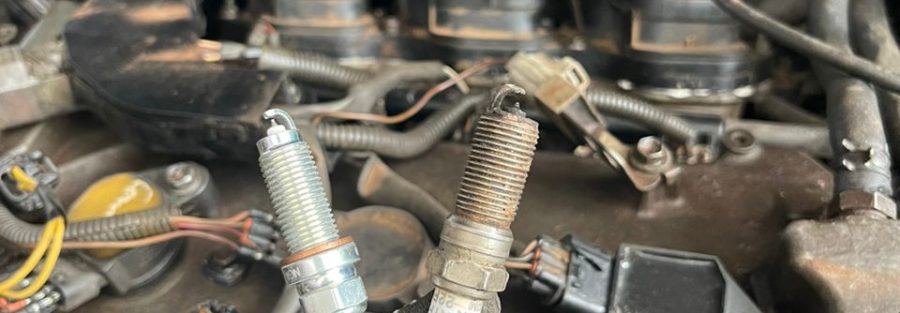Spark plugs might be small in size, but they play a colossal role in your vehicle’s engine performance. These unassuming components are the fiery catalysts that bring your engine to life. Let’s embark on a journey to unveil the secrets of spark plugs – their roles in the combustion process, the faults they can develop, and how to diagnose these issues.
Table of Contents
The Vital Roles of Spark Plugs
Picture this: you turn the key, and your engine roars to life. This magic is ignited by spark plugs, while often overlooked, these tiny powerhouses are the key to igniting the air-fuel mixture, propelling your car forward with every controlled explosion. Without properly functioning spark plugs, your engine’s efficiency, fuel consumption, and overall performance can suffer. In this exploration, we’ll delve into the intriguing world of spark plugs, uncovering their essential roles, potential faults, and methods of diagnosis. (check out this video tutorial)
Unmasking Common Spark Plug Faults
1. Fouling
Just as a stove’s wick can get clogged, spark plugs can get fouled by carbon deposits, oil, or fuel additives. This can lead to misfiring, poor combustion, and reduced power. This occurs when deposits build up on the spark plug’s firing tip, hindering the spark and leading to misfires. It’s often caused by oil leaks, rich fuel mixtures, or driving in go-slow traffic.
2. Misfiring
If you notice a sudden jerking motion or hear a popping sound from your engine, a misfiring spark plug might be the culprit. This means the spark plug isn’t firing consistently, impacting engine smoothness and fuel economy. If your engine stutters or hesitates during acceleration, a misfiring spark plug could be the culprit. It results from weak or absent sparks, disrupting the combustion process.
3. Wear and Tear
Like any part, spark plugs degrade over time. Worn electrodes and insulators can hinder their ability to generate a strong spark, resulting in decreased engine performance, increased fuel consumption and difficulty in starting.
Decoding the Diagnosis
The key to maintaining a harmonious engine lies in deciphering the signs of spark plug issues and being attuned to your vehicle’s behavior.
Here’s how to diagnose potential problems:
1. Rough Idling
If your engine idles roughly (or vibrates) or seems unstable, it could be due to spark plugs misfiring. Inconsistent sparks lead to incomplete combustion cycles.
2. Poor Acceleration
Sluggish acceleration, particularly when merging onto highways, faulty spark plugs could be the cause. Worn plugs struggle to generate a strong spark, affecting combustion and engine responsiveness.
3. Increased Fuel Consumption
If you find yourself at the pump more often, malfunctioning spark plugs might be to blame. Inefficient combustion leads to higher fuel consumption. When spark plugs don’t ignite the air-fuel mixture efficiently, fuel is wasted. Keep an eye on your mileage – a sudden drop could indicate spark plug trouble.
4. Engine Warning Light
Modern vehicles often have onboard diagnostic systems that detect engine issues, including spark plug problems. If your engine warning light illuminates, it’s worth investigating.
Conducting the Solution: Maintaining and Replacing Spark Plugs
Preventing spark plug issues is a matter of regular maintenance:
1. Scheduled Inspections
Follow your manufacturer’s recommended maintenance schedule. A routine checkup by a professional mechanic can catch spark plug issues early. Periodically inspect spark plugs for signs of wear, fouling, or damage.
2. Replace as Needed
Consult your vehicle’s manual for the recommended spark plug replacement interval. Upgrading to high-quality spark plugs can enhance performance and longevity. As a rule of thumb, spark plugs should be replaced every 30,000 to 50,000 km, depending on the type of plug and your vehicle’s specifications. But as established, spark plugs can and do fail at any time.
3. Keep it Clean
Regularly inspect and clean your spark plugs. Use a soft brush to remove debris and deposits, enhancing their performance.
In conclusion, spark plugs are the unsung heroes of your engine’s performance. From igniting the initial spark of power to propelling you along the open road, their role is undeniable. By understanding their significance, recognizing potential faults, and knowing how to diagnose issues can empower you to maintain a smoothly running vehicle. So, as you hit the road, remember – those tiny sparks are the driving force behind your journey.





